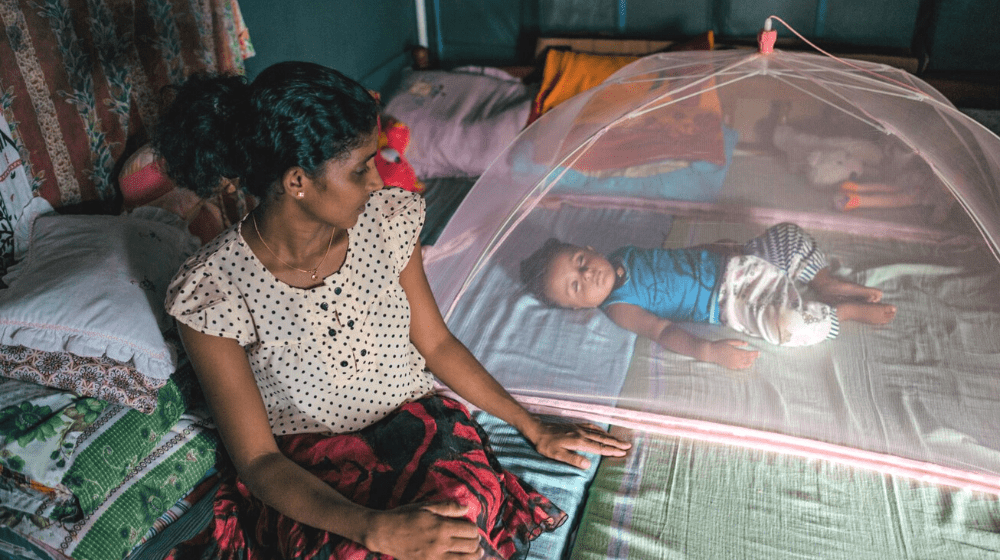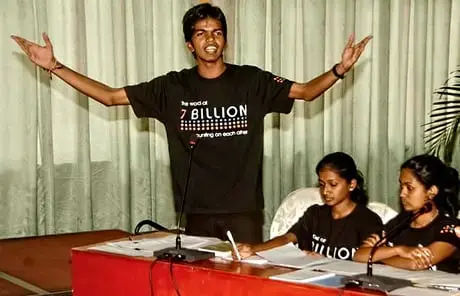Bangkok / Colombo / New York, 8 August 2022 – UNFPA, the United Nations sexual and reproductive health agency, has launched an appeal for US$10.7 million to deliver lifesaving healthcare to more than 2 million women and girls in Sri Lanka in the next six months.
Sri Lanka is experiencing its worst socio-economic crisis since independence. The country’s once robust healthcare system is teetering on the edge of collapse amid debilitating power shortages and a lack of critical supplies, equipment and medicine. This is severely impacting the delivery of sexual and reproductive health services, including maternal health care and access to contraception. Existing protection mechanisms for women and girls in need, including survivors of gender-based violence, have also been severely compromised. A UN survey in May 2022 indicates women and girls’ vulnerability to violence is increasing at the same time as services, including health, police, shelter, and hotlines, are declining due to a lack of financial resources.
“The current economic crisis in Sri Lanka has far-reaching consequences for women and girls’ health, rights and dignity,” said Dr. Natalia Kanem, UNFPA Executive Director. “Right now, UNFPA’s priority is to respond to their unique needs and safeguard their access to lifesaving healthcare and protection services.”
Years of effort have brought steady gains for Sri Lankan women and girls. Some 99 percent of women give birth at health facilities, assisted by medical personnel, but this achievement is now under threat. An estimated 215,000 women are currently pregnant, including 11,000 adolescent girls, and around 145,000 women will deliver in the next six months. Approximately 60,000 women may require access to surgical interventions. UNFPA is providing cash and voucher assistance to pregnant women to support access to health facilities – and continues to build the capacity and skills of the extensive midwifery force across the country – but with infrastructure and transportation challenges, childbirth could be a life-threatening, if not fatal, experience for pregnant women unable to access skilled care.
“UNFPA is committed to meeting the critical health and protection needs of women and girls,” said Kunle Adeniyi, UNFPA representative in Sri Lanka. “Our focus is to strengthen sexual and reproductive health and gender-based violence response services to reduce the long-term repercussions of the current crisis.”
As part of its appeal, UNFPA plans to:
- Distribute lifesaving medicines, equipment and supplies, including for emergency and obstetric care and the clinical management of rape and domestic violence, to meet the priority reproductive health needs of 1.2 million people.
- Supply 10,000 delivery, maternity and dignity kits to women and girls in need, including persons living with disabilities.
- Provide more than 37,000 women with cash and voucher assistance to access reproductive health and protection services.
- Ensure 500,000 women receive information on warning signs during pregnancy.
- Strengthen the capacity of 1,250 midwives to support deliveries in primary health care settings, and for the clinical management of rape.
- Support 10 shelters to expand services for survivors of gender-based violence.
- Provide 286,000 women and girls with information on gender-based violence prevention, and available services and support.
- Support 12,500 women with livelihood programming to reduce the risks of gender-based violence.
- Provide 4,000 adolescent girls with menstrual hygiene supplies.
- Lead and coordinate activities to strengthen prevention, protection and referral systems for survivors of gender-based violence.
With over 50 years in Sri Lanka, UNFPA is leading efforts to protect women and girls’ rights to give birth safely and to live free from multiple forms of gender-based violence, coordinating interventions with UN agencies, and a network of international and local partners. UNFPA has already procured essential reproductive health medicines and supplies and distributed hygiene items, including sanitary pads, to women and girls in need. Cash and voucher assistance is being provided to pregnant and lactating women to ensure uninterrupted access to health facilities for safe pregnancy and deliveries. UNFPA also continues to support seven shelters across the country.
UNFPA’s response is part of the Humanitarian Needs and Priorities Plan launched by the UN in Sri Lanka which calls for US$ 47 million to support 1.7 million people between June and September 2022.
Learn more about UNFPA's response in Sri Lanka here.
Help us meet the urgent needs of women and girls: DONATE NOW
UNFPA media contacts:
In New York: Eddie Wright, ewright@unfpa.org; +1 917 831 2074
In Bangkok: Iman Morooka, morooka@unfpa.org; +66 98 669 3725
In Colombo: Madu Dissanayake, mdissanayake@unfpa.org; +94 772 376 855
About UNFPA:
UNFPA is the United Nations sexual and reproductive health agency. UNFPA's mission is to deliver a world where every pregnancy is wanted, every childbirth is safe and every young person's potential is fulfilled. UNFPA calls for the realization of reproductive rights for all and supports access to a wide range of sexual and reproductive health services, including voluntary family planning, quality maternal health care and comprehensive sexuality education.




